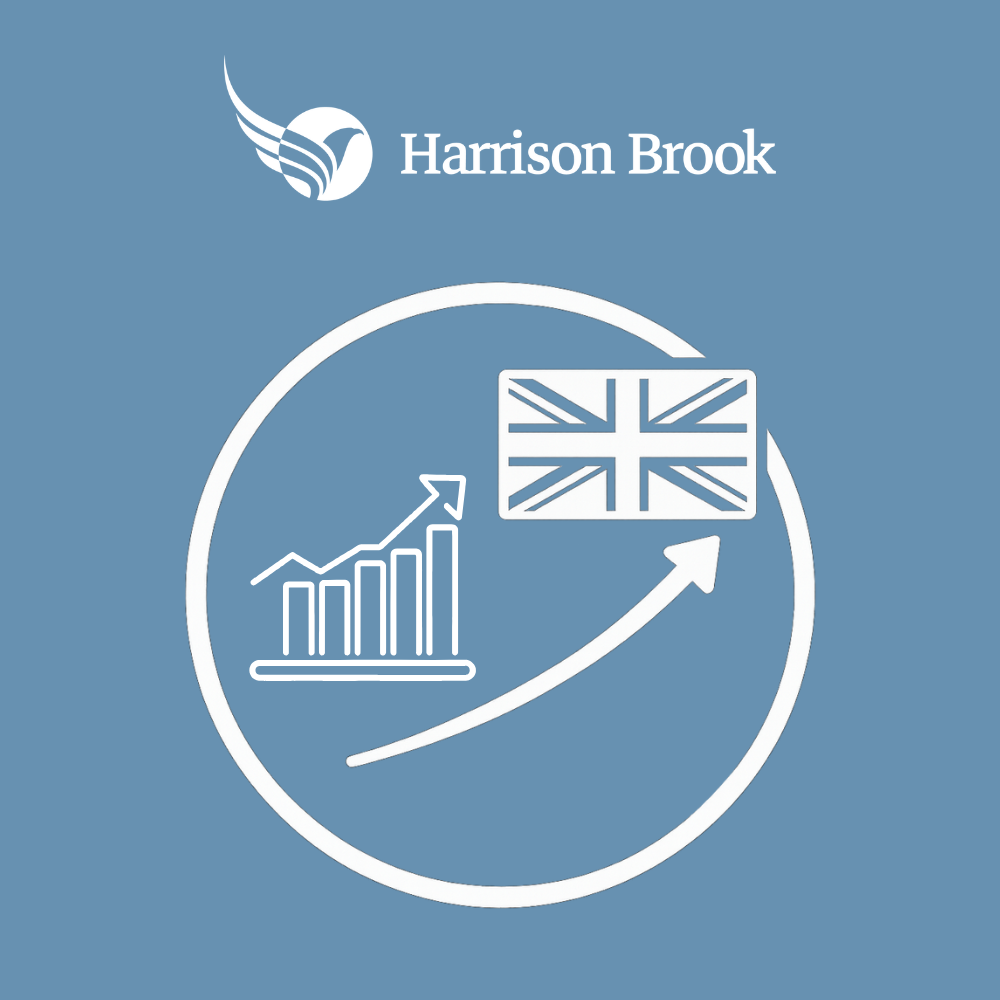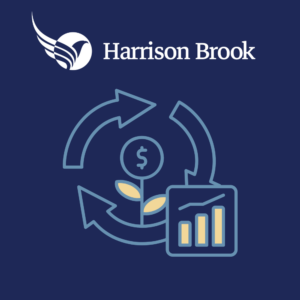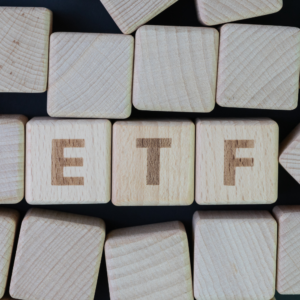
Navigating your finances as a UK expat living in the USA can feel overwhelming. You might still have assets in the UK, new financial opportunities in the United States, and a long list of questions about where your money is best placed. From deciding where to put a lump sum to understanding the safest investments with the highest return in the USA, british expats living in the U.S. often face unique challenges, especially when it comes to the tax implications of holding certain foreign investments. These considerations can make financial decisions feel far more complicated than they need to be.
The good news is that there are clear and effective investment options for UK expats living in the USA that can help you grow your wealth with confidence. The key is understanding how both systems work, how taxes may apply, and how to choose investments that fit your long-term goals.
This guide walks you through the best choices available today, backed by the most searched questions and concerns British expats ask when living in America.
Understanding Your Financial Landscape as a UK Expat in the USA
Before choosing investments, it helps to understand the factors that matter most.
Citizens abroad, including UK expats, face unique financial and tax considerations that must be understood before making investment decisions.
Cross-border tax considerations
Many UK expats want to know where they can get the best return on their money or the safest place to put a lump sum. The answer usually depends on the tax treatment in both the UK and the USA. For example, UK ISAs are not tax efficient in America, while many US accounts are not recognized in the UK.
UK expats may need to file tax returns in both the UK and the USA, as both US and UK tax authorities require reporting of worldwide income. Understanding US tax rules and US taxation is essential, as US taxes apply to worldwide income for US residents, regardless of where the income is earned. This means expats may have to pay tax on the same income in both countries. However, the tax treaty between the UK and US provides mechanisms to avoid double taxation and clarify tax obligations, such as the Foreign Tax Credit and other treaty benefits. It is important to submit accurate tax returns to both US and UK authorities to avoid penalties and ensure compliance with all relevant regulations.
Maintaining access to UK accounts
A common question is whether UK expats can keep their UK savings accounts, pensions, or ISAs. While you can usually keep existing accounts, adding new funds or opening new UK investment accounts becomes complicated once you become a US resident.
Some US brokerages may restrict or freeze accounts if they detect a UK address, so expats should be aware of this risk when managing their accounts.
Working with a cross-border adviser ensures you avoid penalties or double taxation.
Managing Currency Risk as a UK Expat
For UK expats living in the USA, managing currency risk is a vital part of any successful investment strategy. Currency fluctuations between the British pound and the US dollar can have a significant impact on the value of your investments, affecting both your returns and your overall tax liability.
To help mitigate these risks, consider diversifying your investment portfolio across multiple currencies. This approach reduces your exposure to any single currency and can help smooth out the effects of volatile exchange rates. Exchange traded funds (ETFs) that are currency-hedged are another effective tool, as they are specifically designed to minimize the impact of currency movements on your investments.
Regularly monitoring exchange rates and adjusting your investment strategies as market conditions change is also important. Currency fluctuations can have tax implications, potentially affecting your US tax liability or UK tax obligations when you convert or repatriate funds.
Seeking advice from a qualified financial adviser with experience in cross-border financial planning can help you develop an investment strategy that takes currency risk into account. By proactively managing currency exposure, UK expats can better protect their wealth and achieve their long-term financial goals.
Best Investment Options for UK Expats Living in the USA
1. An International SIPP for UK-based pensions
If you still hold a UK pension, an International SIPP is one of the most efficient ways to maintain control. It allows you to consolidate pensions, as well as UK assets and UK investments, into a single structure. This helps expats maintain compliance and manage their UK assets and investments efficiently while living abroad, with access to flexible investment choices.
UK expats often ask about the highest return investments in the UK or how to get 5 percent interest. While no investment return is guaranteed, an International SIPP provides globally diversified options and professional oversight. It is also fully recognized by HMRC.
2. US-based investment accounts that remain UK compliant
Once you are a US tax resident, it is essential to avoid UK-unfriendly investments like PFICs. Instead, investing in US domiciled funds and mutual funds, rather than non-US or non PFIC funds, helps you avoid complex and punitive tax and reporting issues. Non-US mutual funds are often classified as PFICs, which can create significant tax burdens for expats. A compliant US investment account built for expats provides access to global stocks, bonds, ETFs, and funds, especially US domiciled funds and other domiciled funds that are generally more tax efficient and easier to report for UK expats living in the USA, all without triggering UK penalties.
This is often the safest route for expats who want a simple way to invest regularly and grow long term.
3. Employer-sponsored retirement plans
If you work in the USA, retirement plans such as a 401(k) or 403(b) are extremely valuable. Many employers offer matching contributions, which is effectively free money.
Traditional 401(k) and IRA plans allow for tax deductible contributions, which can reduce your taxable income and help you save more efficiently for retirement.
UK expats often ask how much they need to invest to reach goals such as making 3,000 dollars a month in retirement. Employer plans can help significantly, especially for those staying in the USA long term.
4. Low-risk investment options
Some British expats search for the safest investments with the highest return in the USA. While no investment is entirely risk free, the following are considered lower risk:
- US Treasury bonds
- High-quality corporate bonds
- Money market funds
- Certificates of deposit
- Cash equivalents
Cash equivalents, such as short-term government securities and highly liquid assets, play a key role in providing liquidity and stability for expat investors, especially those seeking to manage risk and maintain flexibility in their portfolios.
These can be suitable for short-term savings or holding a lump sum.
5. Globally diversified portfolios
Whether you want to invest 5,000 dollars or 500,000 dollars, a global portfolio remains one of the most effective long-term strategies. Many expats also ask how long it will take to double their money or want to understand the 7 percent rule in investing. Historically, diversified portfolios have returned around that level over long periods, although past performance never guarantees future returns.
Monitoring currency exchange rates is essential for expats with globally diversified portfolios, as fluctuations can significantly impact investment returns and tax considerations.
A globally diversified portfolio helps manage currency risk, market risk, and concentration risk across both the USA and the UK.
Offshore Investments for UK Expats
Offshore investing offers UK expats a range of investment options that can enhance tax efficiency, provide access to global markets, and diversify your portfolio beyond the US and UK. Offshore bonds, for example, are popular among expat investors for their potential tax benefits and flexibility, allowing you to defer tax liability until you withdraw funds.
However, it’s crucial to understand the tax implications and reporting requirements associated with offshore investments. Both UK and US tax laws have specific rules regarding offshore accounts, and failing to comply can result in costly mistakes or penalties. Currency fluctuations and political risks in offshore jurisdictions are additional factors to consider when evaluating these investment options.
To maximize the tax efficiency and benefits of offshore investing, UK expats should seek advice from a professional financial adviser who specializes in cross-border and offshore investments. Professional advice ensures that your investment strategy is compliant with all relevant tax laws and tailored to your unique circumstances. By carefully weighing the risks and rewards, and seeking guidance from an experienced adviser, UK expats can make informed decisions and take full advantage of the opportunities offshore investing provides.
Alternative Investment Options for Diversification
For UK expats seeking to diversify their portfolios beyond traditional stocks and bonds, alternative investment options can offer attractive opportunities. Investments such as private equity, hedge funds, and commodities often have a low correlation with mainstream asset classes, which can help reduce overall portfolio risk and potentially enhance returns.
However, alternative investments typically come with higher risks, less liquidity, and increased fees compared to more conventional investment products. It’s essential to thoroughly understand the tax implications and reporting requirements for these assets, as both UK and US tax laws may apply. For example, certain alternative investments may generate foreign income or capital gains that could impact your tax liability in both countries.
UK expats should also consider how the foreign tax credit might offset some of the tax burden associated with foreign-sourced income from alternative assets. Given the complexity of these investment options, seeking advice from a financial adviser with expertise in alternative investments and cross-border tax rules is highly recommended. A professional adviser can help you assess whether these options fit your risk tolerance and financial goals, and ensure your investment strategy remains compliant and tax efficient.
Estate Planning and Taxes for UK Expats in the USA
Estate planning is a critical aspect of financial planning for UK expats living in the USA, especially given the complexities of tax laws in both countries. Without careful planning, your estate could be subject to double taxation, unnecessary tax liability, or unintended distribution of assets.
UK expats should be aware of the tax implications of holding assets in both the UK and the US, including potential exposure to estate taxes, capital gains tax, and income tax on inherited assets. The foreign earned income exclusion may also affect your overall tax burden, depending on your residency status and the source of your earned income.
Setting up a trust or drafting a will that complies with both UK and US legal requirements can help ensure your assets are distributed according to your wishes and in the most tax-efficient manner. Offshore bonds can also play a role in estate planning, offering potential tax benefits and flexibility for passing wealth to future generations.
Given the risk of double taxation and the complexity of cross-border estate planning, seeking advice from a professional financial adviser with expertise in both UK and US tax laws is essential. Professional guidance can help you minimize your tax burden, take advantage of available tax benefits, and ensure your estate plan is robust and compliant. By addressing these issues proactively, UK expats can protect their legacy and provide for their loved ones with confidence.
Where Do Most British Expats Live in the USA and Why Does It Matter?
Many British expats settle in states like California, New York, Florida, and Texas. The cost of living and tax environment can influence your investment choices. For example, Florida has no state income tax, while California taxes investment gains heavily.
Both US residents and US citizens, including UK expats who have become US persons, face specific tax and investment considerations depending on their residency and citizenship status.
Where you live affects:
- State income tax on investments
- Whether municipal bonds are tax free
- Net returns on your overall portfolio
Understanding the local tax environment is essential before choosing where to put your money.
What Is the 7 Percent Rule in Investing?
Many British expats look for clear and simple investment guidance. The 7 percent rule is often mentioned because it helps estimate how investments grow over time. If your portfolio grows at an average of 7 percent annually, it may double in approximately 10 years. This is also called the Rule of 72.
This is not a guarantee but a historical guide. It highlights why long-term investing often outperforms leaving money in cash, especially during inflation.
How to Choose the Best Investment Strategy as a UK Expat
Your investment choices should reflect:
- Whether you plan to return to the UK
- How long you will remain in the USA
- Your tax status in both countries
- Your appetite for risk
- Your existing UK pensions or savings
- Whether you want income or growth
A cross-border adviser ensures your investments are compliant, efficient, and aligned with your long-term plans in both countries. It is also essential to seek professional tax advice to ensure your investment strategy meets all UK and US tax requirements and avoids costly mistakes.
FAQs – Best Investment Options for UK Expats Living in the USA
Can UK expats invest in US stocks and ETFs?
Yes, but you must avoid PFICs and structure your account correctly to remain UK compliant.
Can I still access my UK pension from the USA?
Yes. Most expats use an International SIPP to manage and access their UK pensions while living abroad.
What is the safest investment for UK expats in the USA?
US Treasury bonds and high-quality money market funds are among the safest. For long-term growth, a diversified portfolio is usually recommended.
Can I keep my UK bank account after moving to the USA?
Most banks allow you to keep your account, but some restrict new deposits when you become a non-UK resident.
Where is the best place to put a lump sum as a UK expat?
This depends on your goals. Common areas include expat investment accounts, low-risk fixed income, or diversified portfolios.
Ready to Invest With Confidence?
Cross-border investing does not need to feel complicated. At Harrison Brook USA, we help UK expats build clear, tax-efficient, and globally diversified investment strategies that work on both sides of the Atlantic. If you want expert guidance tailored to your goals, we are here to support you.
Speak with a cross-border financial adviser today.



